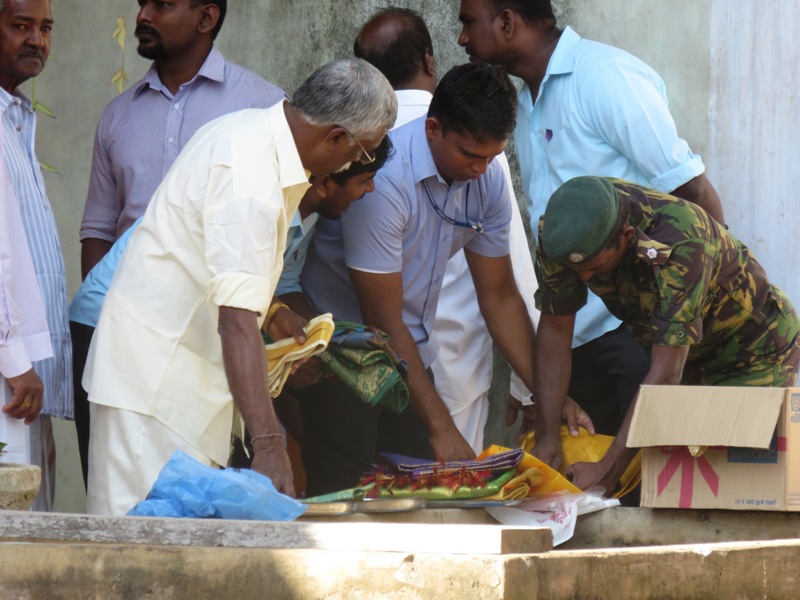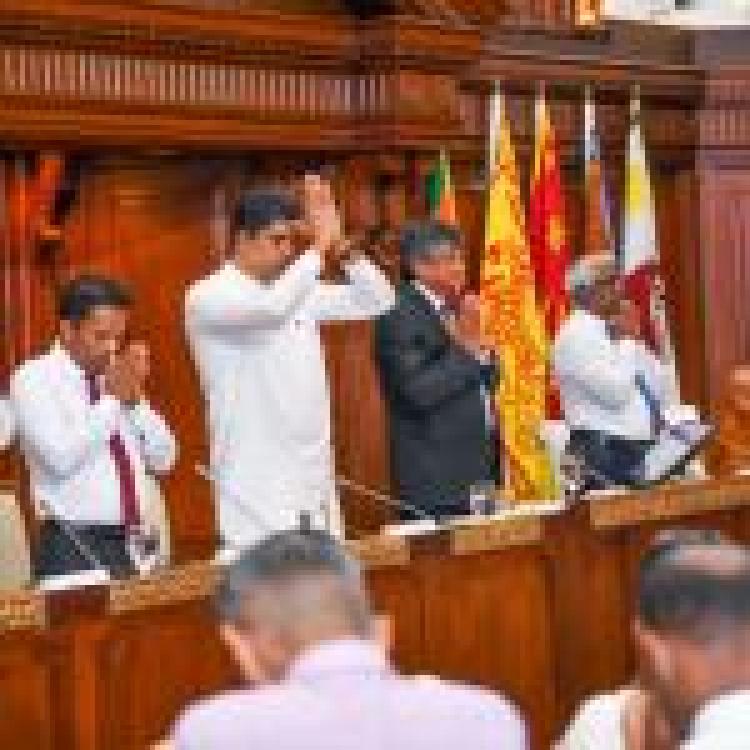%20(1).jpg)
(File Photo)
The Sri Lankan army has granted conditional access to seven temples out of 21 located within the high-security zone in Jaffna, mandating worshippers must use army transportation and provide their home address to reach the temples.
Accordingly, anyone intending to visit any of these Hindu temples must provide their names, addresses, identification card numbers, and telephone numbers to the management of the Temple, which will share it with the district and divisional secretariat before they can even be allowed to visit. Among the list of temples included, is the Amman Temple - Palaly Raja Rajeswari Amman Kovil.
In addition to this, those wishing to visit cannot travel alone and must seek transportation from the army to enter the high-security zone. The news comes just days after an announcement from the Presidental Media Division citing that 11 Buddhist temples out of which four are in Trincomalee will be declared sacred.
(File Photo)
In recent years, temples located within the high-security zones have been subjected to vandalism and theft. Two idols in the Rajarajeshwari Amman temple located in the high-security zone in Palaly were stolen last year.
The Rajarajeshwari Amman temple which was consecrated in 1846, had been celebrating various festivals until the 15th of June 1990, when the villagers in Palaly were displaced throughout the Jaffna Peninsula due to armed conflict. Following the end of the armed conflict the temple administration was required to get the military's permission to access the temple grounds which is situated in the Palaly military high-security zone. The temple administration questioned how two continuous acts of robbery could have occurred when there were round-the-clock security and patrols by the military around the Temple. The North-East continues to remain one of the most militarized regions on the planet with large swathes of land occupied by the Sri Lankan armed forces. Almost all of Palaly’s 44,000 residents who were mostly Tamil, fled the Sri Lankan government in June and July 1990 and the region has remained a high-security zone with limited civilian access to land since.
In 2011, when a Thai Pongal festival was held at the Amman Kovil, the security forces blocked the entrance and harassed journalists who were there to cover the event.


